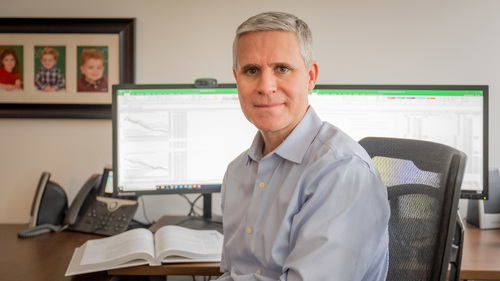
The Worker and Family Support Subcommittee at the Ways and Means Committee in the U.S. House of Representatives invited Jim Sullivan, the Gilbert F. Schaefer College Professor of Economics and co-founder of the Wilson Sheehan Lab For Economic Opportunities at the University of Notre Dame, to testify at its upcoming hearing “Health Profession Opportunity Grants: Past Successes and Future Uses.” The hearing will take place on at 2 p.m. EST Wednesday (March 10) and will be accessible via this link.
Health profession opportunity grants, known as HPOGs are competitive grants awarded to organizations to provide education, training and supportive services to low-income individuals so they can obtain the credentials and skills needed for occupations in the health care field. The intended benefit is twofold: to fill the shortage of health care workers in communities across the country, and to help low-income individuals get out of poverty.
A national evaluation of the HPOG program found no impact on employment or earnings outcomes of recipients. However, this national evaluation approach was flawed. HPOGs themselves are not an intervention or service model; they are a funding source. The evaluation used pooled data from dozens of different HPOG recipients — all with different career pathways, approaches and service partners — making it impossible to identify those programs that might be getting better results.
With this hearing, the subcommittee seeks to understand how to modify the HPOG evaluation approach to focus evaluations at the community level, so it can truly know which HPOG-funded programs are performing well, what models work best to help low-income adults prepare for and enter stable and sustaining health care careers, and how to direct future investment for maximum impact.
During his testimony, Sullivan will draw on the Lab For Economic Opportunities’ experience evaluating interventions with service-provider partners across the country to illustrate different evaluation approaches that can best identify effective models at the community level. He will also share promising emerging evidence on existing programs that help people move from poverty to self-sufficiency. Sullivan has been researching the impact of domestic anti-poverty programs for 20 years.
